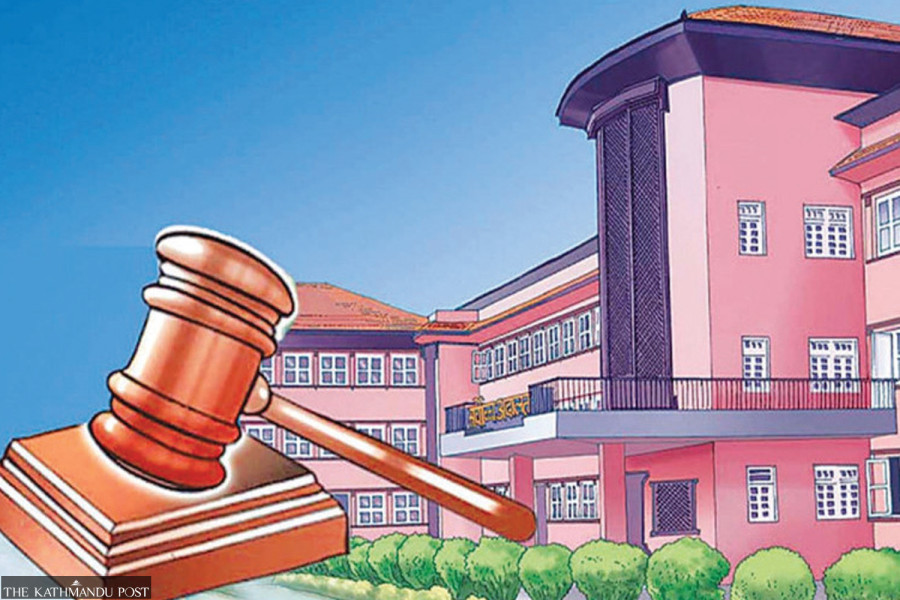National
Supreme Court says it cannot pass verdicts solely on the basis of media coverage
The court also raises questions over continued delays in advancing the transitional justice process.
Post Report
The Supreme Court has said the court cannot pass a verdict solely based on the news and stories published in any newspaper.
A division bench of Justices Ishwar Prasad Khatiwada and Kumar Regmi ruled that as it is not uncommon for the media to publish fake, speculative and sensational news, the judiciary cannot take them as the basis to formulate its decision.
The court made the observation in a full text of the verdict to acquit CPN (Maoist Centre) chairperson Pushpa Kamal Dahal, who happens to be the country's prime minister.
Referring to the stories from two vernacular Nepali dailies, which claimed Dahal had accused the Supreme Court of conspiring against the peace process, senior advocate Dinesh Tripathi on May 16, 2016 had lodged a contempt of court case against Dahal. The two newspapers had written that Dahal had interfered in the cases related to conflict though they fell under the jurisdiction of the transitional justice mechanism. Dahal’s statement came in the wake of the court’s verdict to arrest a Maoist cadre in connection with a murder case related to the insurgency. Dahal, according to the petitioner, had claimed that the court’s decision was unacceptable to him and his party.
Tripathi, in his petition had demanded that Dahal be immediately summoned to the court to record his statement. He also had sought a punishment—one year in jail term and Rs10,000 in fine and as per the Supreme Court Act-1991 as the latter headed a political party that is currently in government.
However, in his response to the court, Dahal had accused the newspapers of twisting his statements to present sensational news. The court has largely bought the clarification from Dahal.
“This verdict has tried to discredit the media, which is a serious issue. It has questioned the impartiality of the press, which I believe the media industry should take very seriously,” Tripathi told the Post.
Seven years after the petition, the Khatiwada-led bench on January 5 acquitted Dahal of the charge and the full text of the verdict was issued on Friday. But the court said it is everybody’s responsibility to maintain the dignity and sanity of the judiciary. Referring to Dahal’s statement, the court said: “Issuing threatening remarks, challenging not to abide by the court’s rulings and making provocative remarks serve nobody.” It further said there was a trend among the political parties to make sensational remarks for political consumption.
The court also raised questions over the continued delay in advancing the transitional justice process. It claimed that even now the judiciary has shown patience in accepting cases related to the conflict period. “Sixteen–seventeen years for conflict management is a long time but no expected progress has been made in advancing the transitional justice process,” reads the verdict. The judiciary must rethink its ‘judicial patience’ (in accepting the war-era cases), it cautioned.
There has been little to no progress in providing justice to the thousands of victims of the insurgency that lasted until 2006 from 1996. So far the judiciary has convicted the perpetrators in just four cases related to the insurgency. Of late, the victims are turning towards regular justice with the failure of the Truth and Reconciliation Commission and the Commission of Investigation on Enforced Disappeared Persons to perform their jobs.
However, successive governments have claimed that insurgency-era cases of human rights violations fall under the jurisdiction of the transitional justice mechanism and that the judiciary should refrain from entertaining such cases.




 13.12°C Kathmandu
13.12°C Kathmandu













